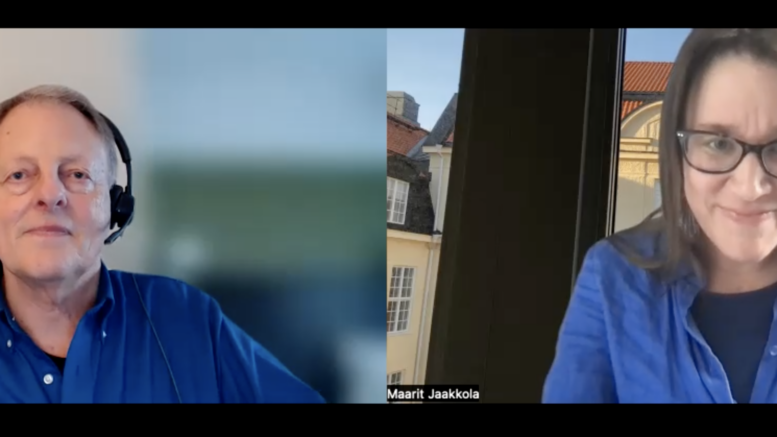Yesterday, I had a different task as a webinar moderator from the usual. We organized a memorial webinar in honour of the linguistic researcher Tove Skutnabb-Kangas who passed away in May. With all personal stories, it was a precious, memorable and beautiful event, but also emotionally overwhelming.
Tove Skutnabb-Kangas, born in 1940 in the war-torn Helsinki, conducted her lifework in the context of Nordic countries, living in Denmark and Sweden. She was described by the New-York-based professor emerita Ofelia García, a leading linguistic researcher herself, as “a giant in the scholarly work of multilingualism”. The Canadian multilingualism researcher Jim Cummins, well known in Sweden for his linguistic interdependence hypothesis of second-language learning, commemorated Tove’s furious speech at an international conference where almost half of the audience left the room.
Skutnabb-Kangas conducted her research with such a personal engagement that it must have implied a lot of emotional investment. Her seminal book Tvåspråkighet (Liber Läromedel, 1981; the English translation Bilingualism or not: The education of minorities, Multilingual Matters, 1981) is still used in higher education study programmes for its definitions of “mother tongue” and “second language”. The last work, which she edited together with her husband of 44 years, professor emeritus Robert Phillipson, was the Handbook of linguistic human rights (Wiley-Blackwell, 2022). It summarizes decades of work. Tove’s list of publications is extensive, containing over 30 books, 22 edited volumes, 347 book chapters, 96 articles in journals, and 45 book reviews.
With concepts such as linguicism – linguistic discrimination analogous to sexism or racism – and linguistic human rights (LHR), Tove’s work has meant a lot for many people all around the world. At 75th anniversary year of the UN’s declaration of human rights, the promotion of linguistic human rights is more topical than ever. She was a personal role model for many researchers, teachers and civil society activists. “The disease of monolingualism can be cured” was an encouraging message for minority community members struggling to maintain their bi- or multilingual identities, and, because of the work of the global community of multilingualism researchers, has now become the mainstream conception, highlighting the fact that language learning does not need to be subtractive.
In the webinar, the professional, personal and private levels intermingled, and the complexity of a lifework of an individual was gradually exposed. One of the most touching moments was when Tove’s daughter told about the sacrifices that a prolific academic may need to do. On the other hand, it became evident how Tove generously shared her energy and encouragement with different communities. When looking back at all my own e-mail correspondence, I can still discover the emphatic tone in her messages: “Wonderful that you, younger generations, are there to continue – but please do remember that it does not pay off to burn out yourself”, she advised. And she sent hugs, even if we had never met in person.
The webinar was part of a series focussing on Sweden-Finnishness that the Sweden-Finnish Research Network and the Archives of the Finnish Minority in Sweden are jointly running on a monthly basis. The same day that we received an answer from Tove that she would be willing to be a guest speaker at our series, we received the message of her passing. This is why it seemed appropriate to organize the memorial event. I’m truly grateful for everyone who came and shared their stories: Jim Cummins, Ofelia García, Ilka Haarni, Leena Huss, Jarmo Lainio, Anna-Riitta Lindgren, Elina Majakari, Annika Pasanen, Robert Phillipson, Heli Henriksson Vasara and Erkki Vuonokari.
For those who want to leave a personal message beyond the webinar, we established a memorial wall (see below). The webinar recording will also be available in the Archive’s YouTube channel. On YouTube, you will also soon be able to watch the uncut interview with Jim Cummins and Ofelia García’s video greeting.

Be the first to comment on "Tove Skutnabb-Kangas (1940–2023) in memoriam"